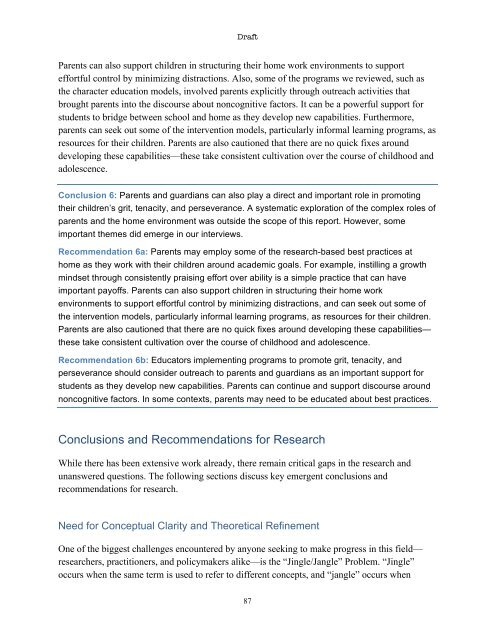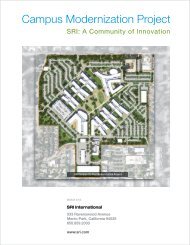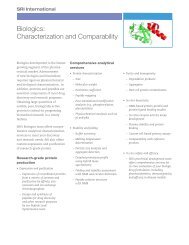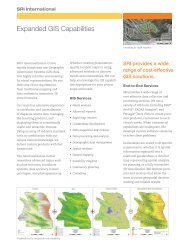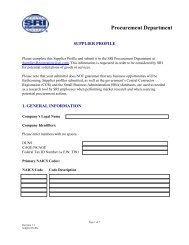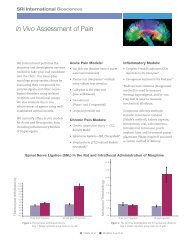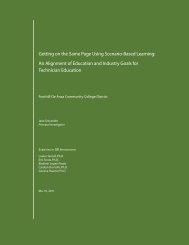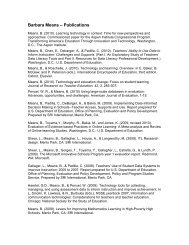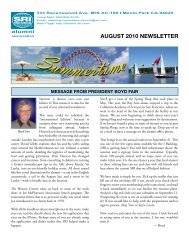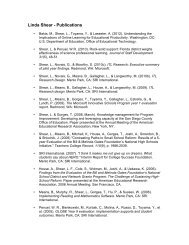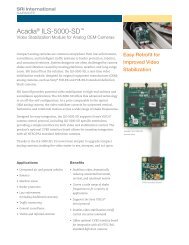Promoting Grit, Tenacity, and Perseverance - U.S. Department of ...
Promoting Grit, Tenacity, and Perseverance - U.S. Department of ...
Promoting Grit, Tenacity, and Perseverance - U.S. Department of ...
You also want an ePaper? Increase the reach of your titles
YUMPU automatically turns print PDFs into web optimized ePapers that Google loves.
Draft<br />
Parents can also support children in structuring their home work environments to support<br />
effortful control by minimizing distractions. Also, some <strong>of</strong> the programs we reviewed, such as<br />
the character education models, involved parents explicitly through outreach activities that<br />
brought parents into the discourse about noncognitive factors. It can be a powerful support for<br />
students to bridge between school <strong>and</strong> home as they develop new capabilities. Furthermore,<br />
parents can seek out some <strong>of</strong> the intervention models, particularly informal learning programs, as<br />
resources for their children. Parents are also cautioned that there are no quick fixes around<br />
developing these capabilities—these take consistent cultivation over the course <strong>of</strong> childhood <strong>and</strong><br />
adolescence.<br />
Conclusion 6: Parents <strong>and</strong> guardians can also play a direct <strong>and</strong> important role in promoting<br />
their children’s grit, tenacity, <strong>and</strong> perseverance. A systematic exploration <strong>of</strong> the complex roles <strong>of</strong><br />
parents <strong>and</strong> the home environment was outside the scope <strong>of</strong> this report. However, some<br />
important themes did emerge in our interviews.<br />
Recommendation 6a: Parents may employ some <strong>of</strong> the research-based best practices at<br />
home as they work with their children around academic goals. For example, instilling a growth<br />
mindset through consistently praising effort over ability is a simple practice that can have<br />
important pay<strong>of</strong>fs. Parents can also support children in structuring their home work<br />
environments to support effortful control by minimizing distractions, <strong>and</strong> can seek out some <strong>of</strong><br />
the intervention models, particularly informal learning programs, as resources for their children.<br />
Parents are also cautioned that there are no quick fixes around developing these capabilities—<br />
these take consistent cultivation over the course <strong>of</strong> childhood <strong>and</strong> adolescence.<br />
Recommendation 6b: Educators implementing programs to promote grit, tenacity, <strong>and</strong><br />
perseverance should consider outreach to parents <strong>and</strong> guardians as an important support for<br />
students as they develop new capabilities. Parents can continue <strong>and</strong> support discourse around<br />
noncognitive factors. In some contexts, parents may need to be educated about best practices.<br />
Conclusions <strong>and</strong> Recommendations for Research<br />
While there has been extensive work already, there remain critical gaps in the research <strong>and</strong><br />
unanswered questions. The following sections discuss key emergent conclusions <strong>and</strong><br />
recommendations for research.<br />
Need for Conceptual Clarity <strong>and</strong> Theoretical Refinement<br />
One <strong>of</strong> the biggest challenges encountered by anyone seeking to make progress in this field—<br />
researchers, practitioners, <strong>and</strong> policymakers alike—is the “Jingle/Jangle” Problem. “Jingle”<br />
occurs when the same term is used to refer to different concepts, <strong>and</strong> “jangle” occurs when<br />
87


